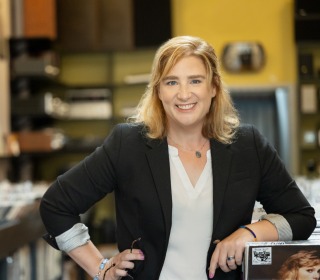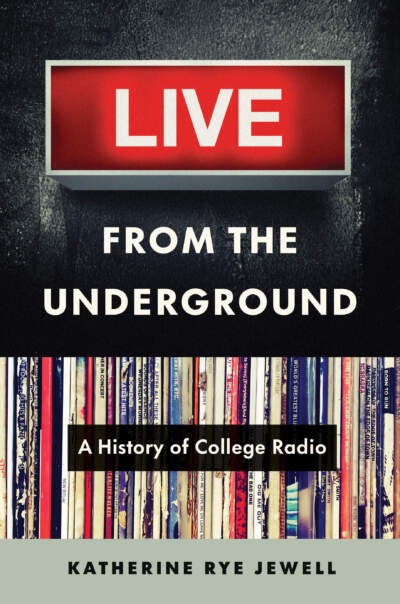Professor Katherine Rye Jewell of the Economics, History and Political Science Department recently saw the publication of her book Live from the Underground: A History of College Radio (University of North Carolina Press). The book has garnered significant media coverage, and here she discusses her work.
You were involved with your campus radio station at Vanderbilt. What was it about that experience that had such an enduring impact on your personal and professional development?
Student radio was really where I found my voice - it gave me confidence as a public speaker, but it was also about the artistic and musical curation that I could engage in at the station.
How has the college radio scene changed since your own days at the station?
College radio used to be THE key way of discovering new music - especially local music. It is no longer the only game in town with the rise of the internet and social media, but it still exists and we need DJs to act as curators and editors of all that content out there. Plus, college students are creative! They will find new and exciting ways to use these stations.
What do you think has been lost with those changes?
It certainly has diluted the power of students to curate new music and drive musical trends in certain ways, but they still have those links with the music industry, and they are still a very desirable market. I think what is lost instead is the sense that universities are places where knowledge and cultural production that might not have a clear market benefit can get support. We are too often subjected to market-based metrics for what we do, rather than seeing these institutions as public goods dedicated to knowledge and cultural creation.
You helped create a podcast channel at Fitchburg State. How do you think the “Perseverantia” series - and podcasts in general - can fill the void left by the traditional college radio station?
I think they go hand in hand - students should be in charge of both, having places for their voices and experiences to go. Where they differ is in the mode of production and the dissemination of content – but both, ultimately, are about students’ educational experiences.
Regarding your new book, how did you balance research, writing and editing with your teaching load?
My research informs my teaching, and vice versa. I see them as inextricably linked, because the same underlying questions that drive my research are built into the themes of my courses. I also benefit from doing recent US history, which has lots and lots of digitized content, particularly student newspapers at universities and colleges across the country. Plus, writing is a process of concentration and abandonment. When I’m working on teaching, the ideas from my research are sorting themselves out in the back of my mind, so when I am able to sit down and focus on the writing, I am ready to go. But it is not easy, and I greatly benefit from a very supportive family and being diligent about task management and making sure I’m using my time effectively and efficiently. I’m a bit obsessed with my paper planner!
The book has gotten a lot of great publicity. How does it feel to see your work embraced in this way?
It’s really wonderful to see the response. It’s a huge honor to be able to write about something that is so beloved an experience for so many, and I’m so pleased that my history of it resonates with those who participated in college radio. It’s a rare thing for a historian to be able to have their treatment of events evaluated by the people who lived it – that is the weird and wonderful part of doing recent history, I guess!

